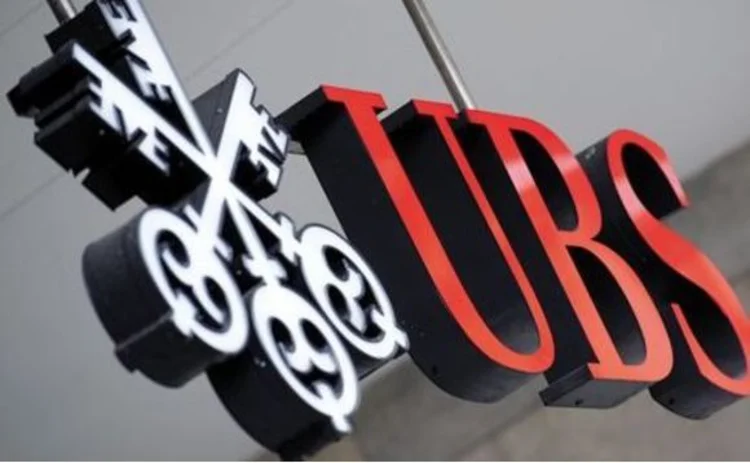
Unauthorised trading costs UBS £50 million
Penalty is, to date, the third largest levied by the UK regulator

The Financial Services Authority (FSA) announced on November 5 that it had received information concerning rogue trading at UBS, fining the bank £8 million. The penalty for serious systems and controls failures is the third largest levied so far by the UK regulator. The hidden trades have already cost the bank a further $42 million in compensation to affected clients.
The FSA said in its final settlement that UBS had failed to prevent employees carrying out unauthorised transactions with customer accounts. It also revealed that an internal whistleblower had informed UBS about the trades, which were then reported to the regulator. One employee, Andrew Cumming, has been fined and banned by the City watchdog, in a related enforcement action announced on November 13, for helping to conceal unauthorised trading losses. The regulator made clear that Cumming did not carry out the unauthorised trades, but aided in a cover-up involving fake loans. Four as yet unnamed UBS employees were reportedly involved in the unauthorised trading, using funds from at least 39 customer accounts at UBS’s London-based wealth management business, between January 2006 and December 2007.
The FSA says papers signed by Cumming on at least seven occasions between October 2005 and October 2007 helped to document false loans, which were used to conceal losses arising from unauthorised trading. It added Cumming was “asked by a senior colleague to do so, even though he knew the ‘loans’ were not authorised by UBS”. The FSA says although Cumming did not initiate the fraud, he was aware from late 2007 that the loans he was signing off were being used to hide unauthorised trading losses. Instead of blowing the whistle, the FSA says he signed a further phoney loan document “and allowed the ruse to continue”.
“Cumming deliberately misled UBS and its customers,” says Margaret Cole, FSA director of enforcement and financial crime. “Although he did not stand to make a personal gain, his complicity allowed a colleague to continue making unauthorised trades, while the losses continued to mount up. We are committed to deterring behaviour of this kind by banning and fining anyone found to have committed such misconduct.”
Clients were told they were providing loans to other UBS customers with promises of high rates of interest. The documents signed by Cumming on UBS-headed paper gave these loans a veneer of officialdom. Cumming has been banned from performing any function regulated by the FSA for a minimum of five years and fined £35,000. The FSA said in its final notice to Cumming that a penalty of £100,000 was merited, but due to his financial circumstances it was halving the figure to £50,000 – reduced to the final figure due to his early settlement. Cumming joined UBS in 1999, working within the Swiss bank’s London wealth management unit as a client adviser. He was dismissed in March 2008 for gross misconduct.
The bank failed to implement remedial measures “in response to several warning signs that suggested the business’s systems and controls were inadequate”
In addition to the regulatory fine, UBS has confirmed it has paid out $42 million in compensation to the customers whose funds were used. The unauthorised trades were made using customer funds and losses made were allocated to the customers’ accounts. UBS launched its own internal investigation once it had been notified of the transactions. The probe estimated that the rogue employees were making as many as 50 unauthorised transactions a day at the peak of the operation. The rogue trades, which the fake loans were used to disguise, were in the foreign exchange and precious metals markets.
The bank issued a formal press statement by telephone saying: “UBS deeply regrets this incident and, having fully co-operated with the FSA’s investigation, we are now pleased this matter has been settled so that we can move forward.”
The fine would have been £10 million had UBS not co-operated and agreed to settle early in the FSA’s investigation. The regulator’s probe found UBS had failed in a number of key areas, and says the bank failed to implement remedial measures “in response to several warning signs that suggested the business’s systems and controls were inadequate”. In 2005 the bank was fined £100,000 by the FSA for systems and controls failings in its transactional reporting.
“It is imperative, particularly in these more challenging financial conditions, that firms have suitable systems and controls in place to keep their houses in order,” says Cole at the FSA. “Where firms fall short in this regard, the consequences will be severe.”
More broadly, the FSA says UBS failed to manage and control its key risks, and the level of risk created by the business model operated by its wealth management business. On November 17, Oswald Grübel, the bank’s chief executive, said: “I’d like to see us put more risk on the table and actually trade a bit harder.” Grübel told analysts that he is pursuing a strategy of “returning clients to the heart of the business” as part of a “revolution” in the way the bank operates. He joined the bank in February and has pledged to focus on medium-term profits and sustainability over short-term expectations. The bank last turned a pre-tax profit in 2006; since then it has suffered about $50 billion in writedowns.
The FSA also says UBS failed to provide an appropriate level of internal supervision over its customer-facing employees, and that the bank’s remuneration policies contributed to the violations by encouraging employees to take risks.
The FSA’s final settlement with UBS says: “UBS was undergoing a period of substantial growth in relation to its international wealth management business and accordingly, financial performance of employees was a material factor in assessing their remuneration, in particular discretionary annual bonuses for desk heads and client advisers. This created a tension between employees’ personal interests and their risk and compliance obligations. This tension needed to be appropriately managed.”
Only users who have a paid subscription or are part of a corporate subscription are able to print or copy content.
To access these options, along with all other subscription benefits, please contact info@risk.net or view our subscription options here: http://subscriptions.risk.net/subscribe
You are currently unable to print this content. Please contact info@risk.net to find out more.
You are currently unable to copy this content. Please contact info@risk.net to find out more.
Copyright Infopro Digital Limited. All rights reserved.
You may share this content using our article tools. Printing this content is for the sole use of the Authorised User (named subscriber), as outlined in our terms and conditions - https://www.infopro-insight.com/terms-conditions/insight-subscriptions/
If you would like to purchase additional rights please email info@risk.net
Copyright Infopro Digital Limited. All rights reserved.
You may share this content using our article tools. Copying this content is for the sole use of the Authorised User (named subscriber), as outlined in our terms and conditions - https://www.infopro-insight.com/terms-conditions/insight-subscriptions/
If you would like to purchase additional rights please email info@risk.net
More on Operational risk
Integrated GRC solutions 2024: market update and vendor landscape
In the face of persistent digitisation challenges and the attendant transformation in business practices, many firms have been struggling to maintain governance and business continuity
Vendor spotlight: Dixtior AML transaction monitoring solutions
The Chartis Research report, AML transaction monitoring solutions, considers how, by working together, financial institutions, vendors and regulators can create more effective anti-money laundering (AML) systems.
Financial crime and compliance50 2024
The detailed analysis for the Financial crime and compliance50 considers firms’ technological advances and strategic direction to provide a complete view of how market leaders are driving transformation in this sector
Automating regulatory compliance and reporting
Flaws in the regulation of the banking sector have been addressed initially by Basel III, implemented last year. Financial institutions can comply with capital and liquidity requirements in a natively integrated yet modular environment by utilising…
Investment banks: the future of risk control
This Risk.net survey report explores the current state of risk controls in investment banks, the challenges of effective engagement across the three lines of defence, and the opportunity to develop a more dynamic approach to first-line risk control
Op risk outlook 2022: the legal perspective
Christoph Kurth, partner of the global financial institutions leadership team at Baker McKenzie, discusses the key themes emerging from Risk.net’s Top 10 op risks 2022 survey and how financial firms can better manage and mitigate the impact of…
Emerging trends in op risk
Karen Man, partner and member of the global financial institutions leadership team at Baker McKenzie, discusses emerging op risks in the wake of the Covid‑19 pandemic, a rise in cyber attacks, concerns around conduct and culture, and the complexities of…
Moving targets: the new rules of conduct risk
How are capital markets firms adapting their approaches to monitoring and managing conduct risk following the Covid‑19 pandemic? In a Risk.net webinar in association with NICE Actimize, the panel discusses changing regulatory requirements, the essentials…







